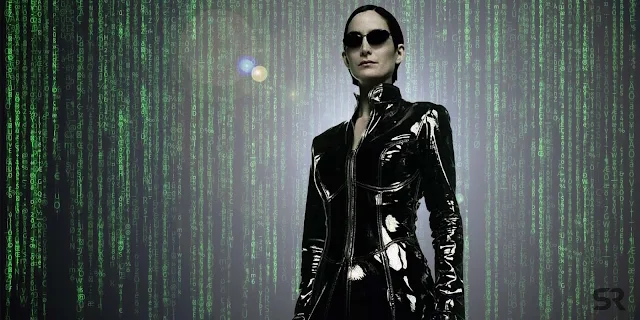To expand further on the postmodern elements of The Matrix, we can examine its use of metanarratives and its subversion of traditional power structures. A metanarrative is a grand, all-encompassing story that seeks to provide a comprehensive explanation of reality. Postmodernism challenges metanarratives by suggesting that there is no single, objective truth that can account for all of reality.
The Matrix is a prime example of a postmodern film that challenges metanarratives, particularly those associated with religion and philosophy.
The film's exploration of power structures is also a key postmodern theme.The Matrix depicts a world in which humans are subjugated by machines, and the power dynamics between humans and machines are constantly in flux. The film subverts traditional power structures by presenting characters who are capable of challenging and overturning the status quo. This subversion of power structures is particularly evident in the character of Neo, who is initially presented as a powerless office worker but who ultimately becomes the savior of humanity.
The Matrix also engages with postmodern theories of subjectivity and agency. Postmodernism challenges the traditional notion of the autonomous, rational subject who is in control of his or her own destiny. The Matrix presents characters who are constantly struggling to assert their agency and to exert control over their lives. The film suggests that agency is not an inherent characteristic of the individual but is rather a product of complex social and technological systems.
Furthermore, The Matrix can be seen as a critique of the capitalist system. The film portrays a world in which humans are enslaved by machines for the sake of profit and efficiency. The Matrix challenges the notion that capitalism is a natural and inevitable system and encourages viewers to consider the ways in which capitalist structures can be oppressive and dehumanizing.
Overall, The Matrix is a postmodern film that challenges traditional assumptions about reality, power, and agency.
The Matrix also engages with postmodern theories of subjectivity and agency. Postmodernism challenges the traditional notion of the autonomous, rational subject who is in control of his or her own destiny. The Matrix presents characters who are constantly struggling to assert their agency and to exert control over their lives. The film suggests that agency is not an inherent characteristic of the individual but is rather a product of complex social and technological systems.
Furthermore, The Matrix can be seen as a critique of the capitalist system. The film portrays a world in which humans are enslaved by machines for the sake of profit and efficiency. The Matrix challenges the notion that capitalism is a natural and inevitable system and encourages viewers to consider the ways in which capitalist structures can be oppressive and dehumanizing.
Overall, The Matrix is a postmodern film that challenges traditional assumptions about reality, power, and agency.
Its exploration of these themes encourages viewers to question their assumptions about the world and to think critically about the ways in which power structures and social systems shape our lives. The Matrix reminds us that reality is complex and multifaceted, and that our understanding of it is always subject to revision and reinterpretation.
And as for neural interfacing with The Matrix...















